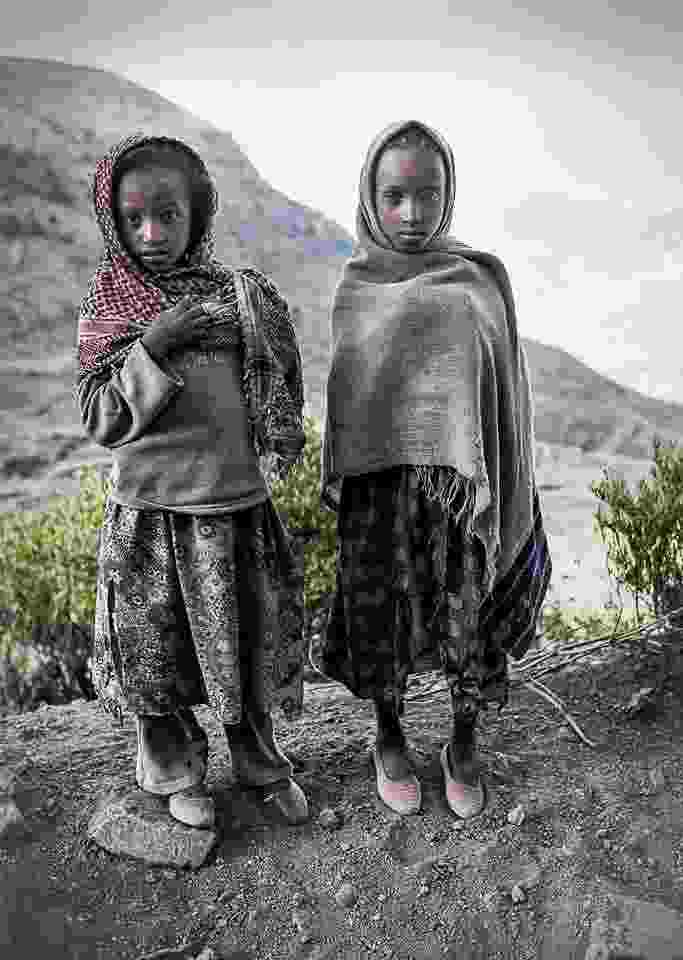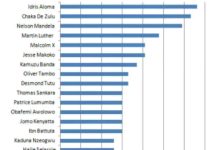Ethnic cleansing and gross violations of children’s rights in the western Tigray region of Ethiopia.
Hundreds of thousands of Tigrayans have been silently displaced, abused and subjected to atrocious actions by the Amhara region.
Children, women and men have not only lost their homes and loved ones, but also their dignity and human rights.
This ethnic war has resulted in the children of West Tigray being left without education, losing their homes and suffering from malnutrition and hunger since the conflict began in November 2020.
Think Agency is working on its new research project, based on interviews and statements of international journalists.
What is infodemia?
a phenomenon related to a certain type of journalism that endangers human rights, including the right to truthful and responsible freedom of information, for people all over the world.
The first episode of this investigative series is based in the Horn of Africa.
What is happening in Ethiopia
Tigray region is a state belonging to northwestern Ethiopia bordering Eritrea to the north, Sudan to the west, Amhara region to the south and Afar region to the east and southeast.
In 1990, western Tigray, bordering Sudan and Eritrea, was added to the Tigray region, which had just been constituted as a state and was a fertile territory for border and identity conflicts.
This conflictual environment reached its peak when Amhara region officials allied their forces with Ethiopian federal troops to take control of western Tigray in November 2020.
Children in the Tigray region, suffering from hunger, violence, lack of health care and education, family uprooting, forced relocation and constant trauma, have been deeply affected by this conflict.
In fact, more than 1.7 million children and adults have been displaced as a result of this conflict.
Children have witnessed the horrific actions committed against their parents and families, and have often been the very victims who have not been spared from this barbaric ethnic cleansing.
Since the conflict began in the western Tigray region, there have been many humanitarian restrictions.
The Ethiopian government suspended many aid operations, blocked humanitarian support routes and caused communications blackouts.
These restrictions have led to a widespread man-made famine that is now considered one of the harshest in the world.
However, in early April 2022, humanitarian aid arrived in the Tigray area to provide food and other humanitarian supplies to the people of Tigray (United Nations, 2022).
“WFP (World Food Programme) has finally been able to meet the food needs of more than 800,000 people in Tigray” (United Nations, 2022).
While this represents a step forward in humanitarian aid for this region, this aid has only reached 40% of all women and children in northern Ethiopia (United Nations, 2022).
In addition, according to the organization, more than 20% of children under the age of five and half of pregnant and lactating women continue to suffer from malnutrition.
Moreover, the effects of the Ukrainian war that began in early 2022 have only intensified the food crisis in western Tigray and the rest of Ethiopia, as the country
provides more than three-quarters of WFP and government wheat (United Nations, 2022).
At the onset of the conflicts in western Tigray, the response of the international community was described as “lukewarm” (Amnesty International, 2021).
The African Union and neighbouring countries did not do enough to draw attention to the situation in the affected region.
Other organisations requested, unsuccessfully, access to the Western Tigray region to verify the facts of the situation in this area that the Ethiopian government neglected.
After the outbreak of the conflict in November 2020, international media access was allowed in February 2021 and several reports began to flow documenting what was happening in the Western Tigray region.
thanks to these independent investigations, allegations were confirmed and a global message was sent.
Since then, international organisations have been trying their best to reach this region and provide the affected population with food and non-food items.
The international community has been urged to respond to the conflicts in this region and assist with solutions, supplies and medical aid.
In early 2022, Ethiopia decided to end the conflicts in the north of the country and move towards long-term solutions.
This would allow for a better flow of humanitarian aid and overall peace in this part of Africa.
To support the humanitarian truce, the Ethiopian government has invited local rebels in the Western Tigray and Amhara regions to cease attacks and withdraw their forces from the occupied areas.
Their response has not yet been received.
The Ethiopian government now has the support of the US, Canada, the UK and other Western nations whose
governments continue to stress the strategic importance of northern Ethiopia.
The fact that numerous organisations and the international community are drawing attention to this conflict indicates the gravity of the situation, which has officially violated the human rights of the population.
FREEDOM OF INFORMATION
in Africa and specifically in Ethiopia. Freedom of information shows different faces on the African continent, where the abundance of press in Senegal (73rd) or South Africa (35th) coexists with the deafening silence of private media in Eritrea (179th) or Djibouti (164th).
In recent years, the right to information has been further eroded by the profusion of repressive laws criminalising
online journalism.
In turn, the proliferation of rumours, propaganda and disinformation has weakened journalism and access to quality information.
African media, often without institutional support and still largely dependent on the editorial dictates of their
owners, have great difficulty in developing sustainable and lasting models.
However, the recent emergence of coalitions of investigative journalists is enabling important exposés on issues of public interest.
According to independent international bodies, press freedom in Ethiopia has deteriorated with the detention of at least 63 journalists – eight of whom are still under arrest – since the beginning of the war between the government and rebels in the northern Tigray region in November 2020, warns the Committee to Protect Journalists.


